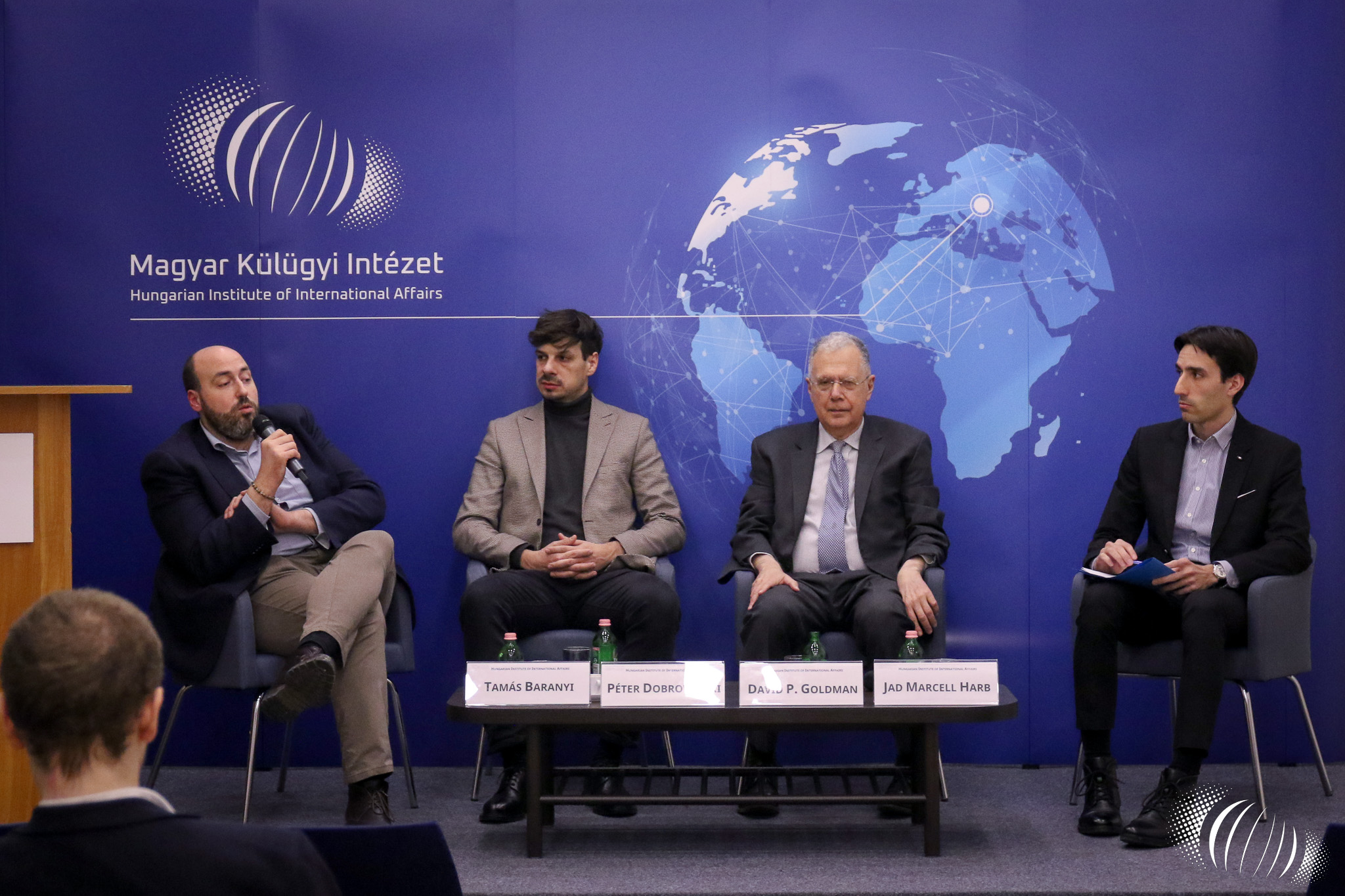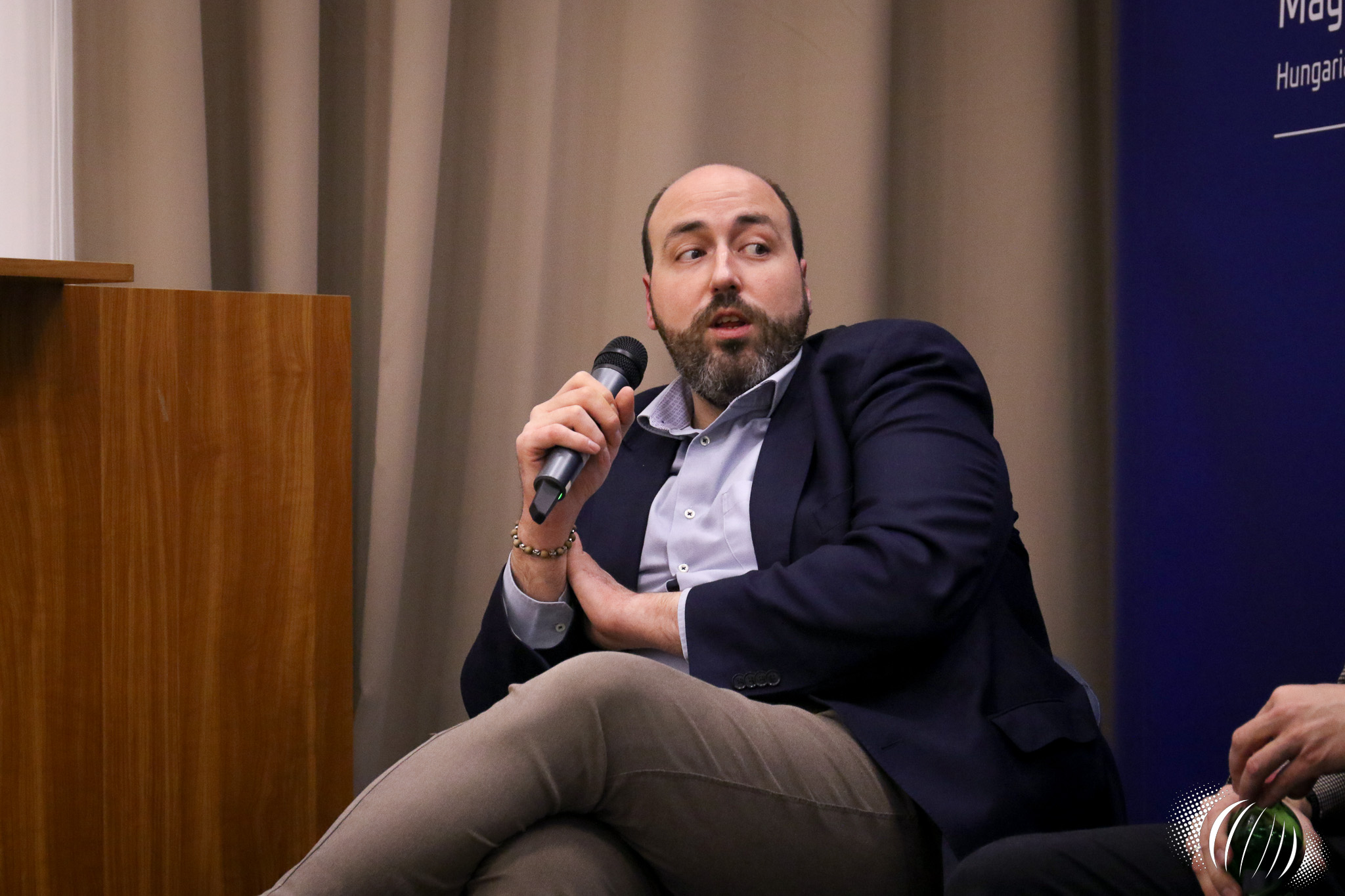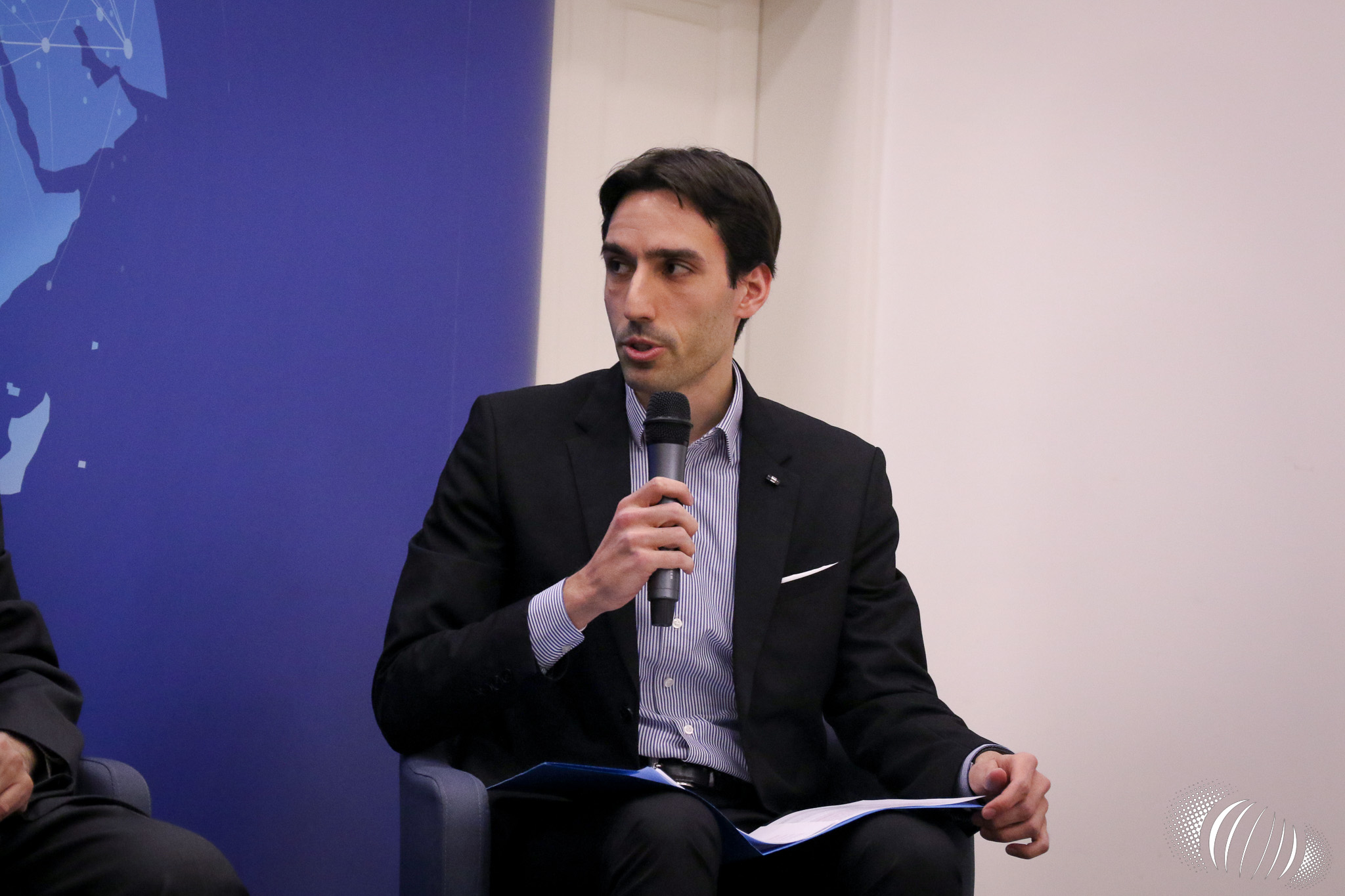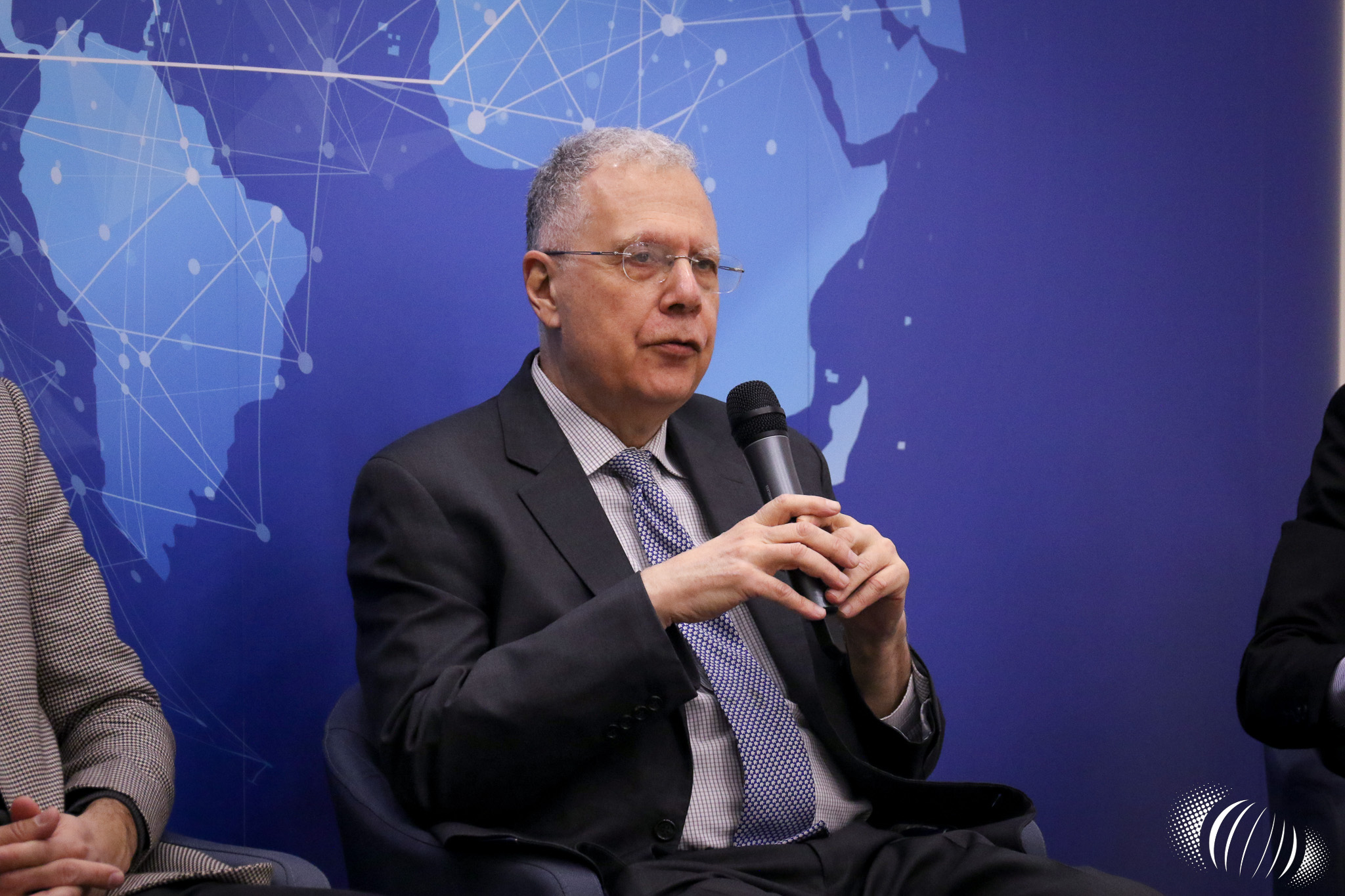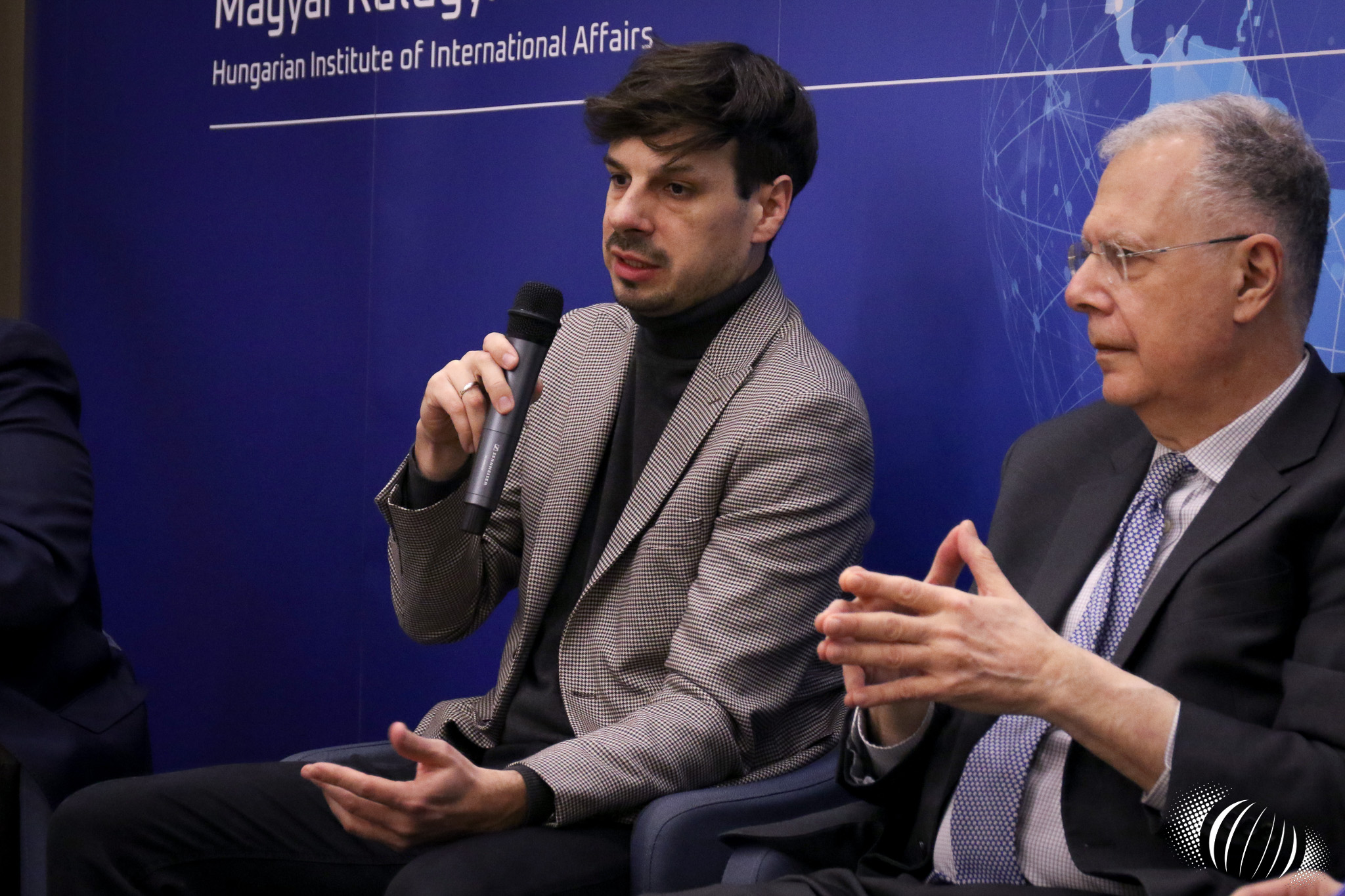On February 13, 2025, the Hungarian Institute of International Affairs (HIIA) held a roundtable discussion titled, “How the Berlin Wall Fell Again: Is Germany’s Cordon Sanitaire Collapsing?”. The panelists included David P. Goldman, Deputy Editor at Asia Times and Member of the Advisory Board of the Hungarian Research Network, Péter Dobrowiecki, Research Director at the Hungarian-German Institute, and Tamás Baranyi, Director for Strategy at HIIA. The discussion was moderated by Jad Marcell Harb, Research Fellow at HIIA.
The discussion began on the topic of the recent Bundestag vote in which CDU leader Friedrich Merz, the frontrunner in the February 23 federal elections, accepted votes from the right-wing Alternative für Deutschland (AfD) party in order to pass an immigration bill. David Goldman pointed out that the German political firewall—or Braunmauer—against the AfD is becoming impossible to maintain as the party’s popularity grows. Péter Dobrowiecki emphasized a key dilemma for the center-right CDU: form a fragile, politically acceptable coalition with the Greens that would restrict the CDU’s ability to pursue conservative policy goals, or try to improve relations with the isolated AfD.
Tamás Baranyi predicted a long and painful negotiation process following the elections. While a more nationalistic Germany (with the AfD) could be a good thing from a broader European perspective, many Germans are understandably uneasy. He also noted that the Bundestag vote was not the first crack in the firewall. Weeks ago, Elon Musk gave AfD leader Alice Weidel a platform to express her ideas. The conversation went viral, and it was the first time many German voters encountered the party’s ideas without a strong negative framing. More recently, a European prime minister—Hungarian Prime Minister Viktor Orbán—shattered the firewall at the international level by meeting Weidel in Budapest.
What about other German political parties? David Goldman turned the conversation to the SPD, which in his view committed political suicide with its stance on the Ukraine war, ultimately resulting in a dramatic decline in German manufacturing and thus enabling AfD’s rise. Tamás Baranyi noted three other parties—the FDP, the BSW, and Die Linke—polling right around the 5% threshold to enter the Bundestag. Péter Dobrowiecki commented on the resurgence of Die Linke at the expense of BSW following a minor scandal, predicting that Die Linke could enter the Bundestag.
Regarding the United States, David Goldman emphasized that the U.S. will not bear the burden of defending Europe forever, which the European elite are becoming increasingly aware of. In this respect, he sees the AfD as the “party of the future” in Germany precisely because it favors policies like reintroducing military conscription and encourages patriotism. Péter Dobrowiecki argued, however, that many of the party’s positions—like leaving NATO—are unrealistic and that it faces a tradeoff between making big statements to maximize attention and presenting itself as capable of governing.

